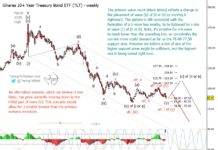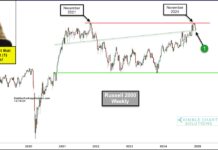“In the 20th century, the United States endured two world wars and other traumatic and expensive military conflicts; the Depression; a dozen or so recessions and financial panics; oil shocks; a flu epidemic; and the resignation of a disgraced president. Yet the Dow rose from 66 to 11,497.” – WARREN BUFFETT
Investor Emotions
This isn’t a buy or sell piece. This is much more important than that. This is about the art and science of controlling your emotions.
“Baseball is 90% mental and the other half is physical.”- Yogi Berra
What people don’t know about this quote is just how much baseball translates to the investment landscape.
If I had to rephrase this quote, it would be that
“Investing is 70% mental and 30% fundamental.”
Baseball is the only sport where the best of the worst is rewarded. Ty Cobb of the Detroit Tigers hit .360 during a 24-year career. This means Ty Cobb, one of the greatest hitters of all time got a hit only 36% of the time. Put another way, arguably the best hitter in baseball history failed 64% of the time for 24 years.
The challenging aspect of our minds is that it’s a compounding mechanism. When things are good, our confidence rises, and the outcomes seem more natural to come by. However, when things are bad, it tends to compound the other direction. Fear, panic, and overthinking are some of the symptoms.
I was lucky enough to play baseball through college and saw first hand the brain drain which the sport required. Failing 67% of the time while battling for playing time was no easy feat. I sit in this chair today and think about how those moments have shaped my investing career. I have shared with quite a few people my method of independent thought. I consistently try to create an atmosphere which limits external influences to make prudent, and rational decisions.
Here’s how it works for me.
- Knowing what you own and why you own it.
Knowing what you own and why you own it. What I learned in baseball was that when you showed up to the field prepared on game days that you couldn’t control how you would perform on that given day, but that if you repeated this over seasons that you could control your long-term success. We always talk about this in investing, if we own a company with a sustainable competitive advantage, pay a decent price for that asset, and have done the work to track the operations, that success follows over time. I am more than happy to pay $100 for an asset producing $12 in cash flow every year.
- Removing external influences.
Removing external influences. One of the keys to managing your emotions is by removing yourself from the crowd. During office hours we do not have any of the financial media on our screens. I have found that external influences like this can be a negative to decision making. Imagine a baseball player who is in a slump turning to the front page of the sports section each day? I assume most would find that process as a net negative. The reinforcement of negative leads to more negative. That can be a challenging environment to make decisions.
- Knowing when market forces are influencing decisions.
Knowing when market forces are influencing your decisions. I am not naive to think that I can block out all noise all the time. This is the reality of the digital world we live in. Therefore one of the most critical factors for handling emotions is being objective with oneself. When markets are falling hard, it’s not hard to notice. So understanding when market forces are starting to influence decision making is critical. For this, we create a step process. We ask ourselves three basic questions. What decision am I making (buy or sell)? Why am I making it (what is the driver)? And would I feel comfortable with this decision if one could not trade for a year? These questions are necessary as it allows us to reflect on what we own, why we do or do not hold it, and review the fundamental thesis. This creates a healthy thoughtful decision.
- Dedicated market checks.
Dedicated market checks. If you think about how a company operates, then you may appreciate this part. A company generates revenue during the year, they strategize for the next 3-5 years, they develop marketing campaigns, they pay employees, they try to make new products and services, and all of these take time. The public markets are then a gift and a curse. They allow us as investors to invest in the greatest businesses in the world, but long-term investors are at the mercy of day trading. If investing is emotional, then having daily prices colored in red and green do not help anyone. If you are a regular market checker then you can probably remember a day where the market opens up bright red, your mind is filled with negative market thoughts, you probably are thinking of selling right away, only to be comforted by a rally into the close bell. Sound familiar? Does that mental process make sense to you? It seems like just a distraction to me. So to limit this instinct, we check the markets 1st at 10:30 am EST and do not recheck it until 3:00 PM. We do not pay close attention to futures, or the opening trade at 9:30 am. We do not even try to see which direction our investments move following an earnings report. If operations are the key to investing, then this is our process to remove distractions.
- Having a historical perspective.
Having a historical perspective. One of the greatest things about time is that we can analyze prior periods with a clean slate. Earlier this year we sent out our piece on market tops. The article goes all the way back to Tulip Mania in 1637 to analyze what has occurred in markets throughout time and across the globe. While each reason is notably different, human emotions remain congruent. What we do know is that since the S&P 500 started in 1923 (composite index), it has been through the worst of the worst. The market has gone through a great depression, world wars, assassinations, terrorist attacks, natural disasters, currency changes (gold standard/dollar), black Monday’s, and more. The outcome? The market is much higher than where it was at every peak throughout time. Why? because the market is made up of companies, these companies generate earnings from consumers like you and me, and the entrepreneurial spirit continues forward. As value is created, the market has rewarded investors over time.
Summary
So investing isn’t a sport, its a job we take extremely seriously. Not only are we passionate about it, but we also have our capital at work with the expectations of compounding over time. What I wanted to highlight within this piece was that commanding one’s emotions is critical to successful investing over the long term and to control emotions there must be a sound framework in place.
So what do I think about the market situation at this moment? Right now we own businesses which possess real competitive advantages which will not only allow for them to grow in a healthy economy but will enable them to gain share during a weak economy. Our companies have significant cash flow, have much more cash than debt and have starting margins well above their peers. With that, we continue to maintain a well balanced psychological framework and focus on the operations of our businesses. This is the equation that has historically worked over the long term.
Twitter: @_SeanDavid
Any opinions expressed herein are solely those of the author, and do not in any way represent the views or opinions of any other person or entity.








